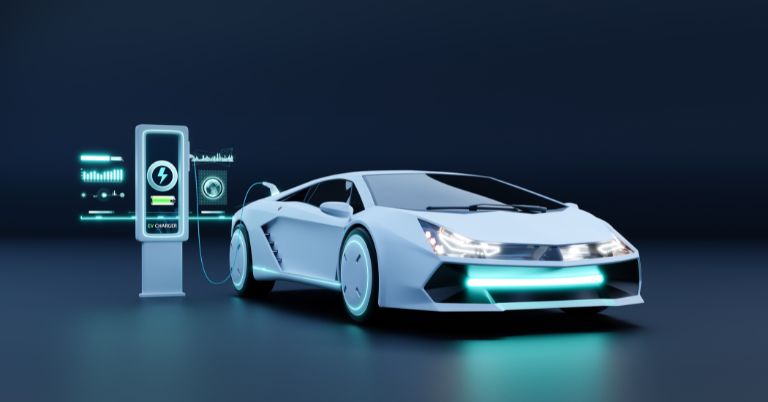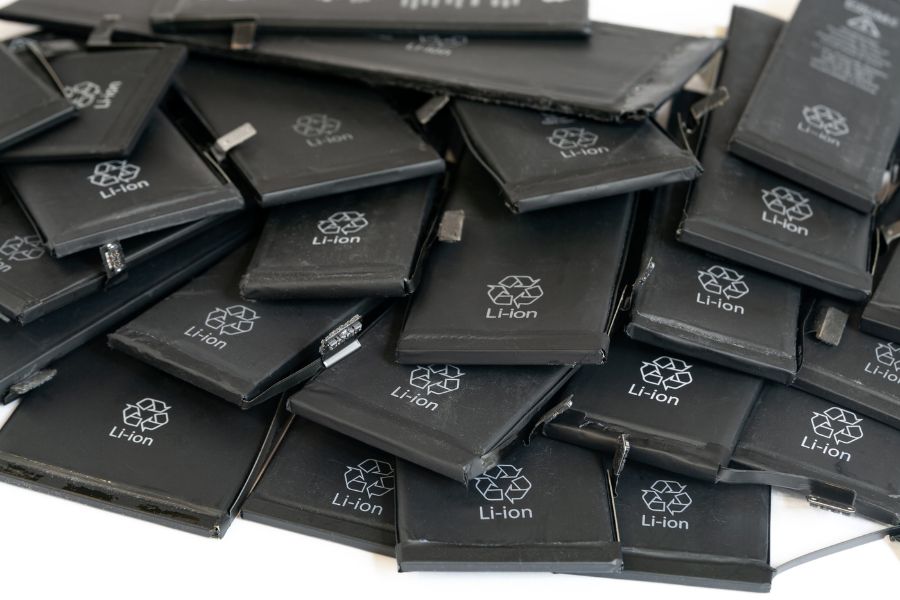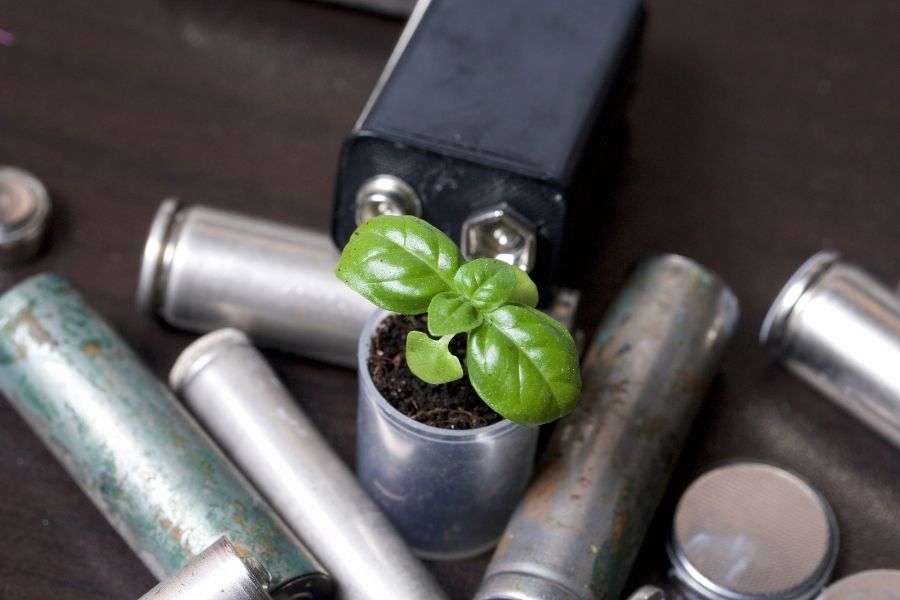
It is no secret that global warming is a huge issue today, and we have to deal with it ASAP! There are a few steps that we know will make a substantial impact on global warming. One such step is using EVs, however, there are some challenges with that as well. Here, we will discuss the issues with EVs and a recent silver lining in the form of battery recycling!
Battery Recycling Overview
Introduction
As I mentioned earlier, global warming is a huge issue today. Matter of fact, the year 2023 is set to be the hottest year on record, with the global mean near-surface temperature of around 1.40(±0.12)°C above the 1850–1900 average. Long story short, Earth is getting hot, and it may become way too hot for us to live in. So, what can we do?

Switching to electric options is surely one way to do so, especially in terms of transportation. We are all aware of the fact that fossil fuels are one of the major offenders of global warming. So, if we move away from fossil fuels, and go electric, everything should be okay, right? Not really. Firstly, over half the electricity produced worldwide relies on fossil fuels. So, even if we switch to electric vehicles, we are still relying on electricity produced through fossil fuels to charge our “clean vehicles”.
Switching to electric isn’t pointless though. Let’s put it this way, using fossil fuels for one single purpose is better than using them for two different purposes. While that may be true, the world didn’t hurry to switch to electric vehicles. This was due to a few issues with the EVs. Historically, EVs have had a poor network of infrastructure and poorer range compared to petroleum cars. On top of that, EVs were also more expensive!
- Also read:
The Battery Issue
Why is that the case with the EVs though? The answer is pretty simple, it’s their batteries! The Lithium-ion batteries used in EVs are made up of a whole lot of minerals other than, well, Lithium. This includes Cobalt, Graphite, Nickel, and Manganese. These mineral sources have become scarce in recent years with the increase in the popularity of EVs.

As it stands, the demand for Lithium is said to increase by 20 folds by the year 2050. This influx in demand will surely create a temporary shortage of raw materials. In addition to that, mass mining of these metals may also open up a different environmental issue that we do not know of so far! Furthermore, there is whole another issue of old and wasted batteries.
The Silver Lining: Battery Recycling
On the bright side, there is a way we can counteract all these drawbacks that Lithium-ion batteries present! We’ve all been hearing about this method all our lives and it’s — Recycling! With recent developments, Li-ion batteries can be recycled very efficiently. This new recycling process helps extract the metals from used batteries from various appliances like smartphones, laptops, and even cars. You can extract more than 80% of Lithium, and almost ALL of Cobalt and Nickel with the new recycling method.

Additionally, different companies are aggressively working on battery recycling. For example, a company called CATL aims to recycle four-fifths of its waste batteries by 2030. The company established a recycling plant in Ningde, China back in 2020. From that plant, the company can extract up to 10,000 tonnes of Lithium, Cobalt, Nickel, and Manganese from waste batteries.
Other companies such as Redwood Materials and Li-Cycle are also emerging on the battery recycling scene. These companies received USD 1.3 billion (2022), and USD 1.5 billion (2023) worth of financing through various sectors respectively. Interestingly, Redwood Materials was founded by the ex-CTO of Tesla.
- You may also like
Conclusion
Though adamant at the beginning, a lot of the world is now open to and is actively switching to electric vehicles. This comes as the result of the recent development in the EV sector alongside the drop in their upfront cost. As it stands, EVs have become comparable to traditional vehicles in more than one way.
The latest recycling methods could moreover help in cutting the cost of batteries which in turn will help drop the price of the EVs altogether. Couple that with newer, better and more efficient battery and car technologies in coming years, EVs could become a no-brainer! If we manage to shift to renewable energy at the same time, we could counteract global warming and divert from the looming climate crisis much more easily!
- Meanwhile, check out our video of Made in Nepal Electric tractor:







![Best Gaming Laptops in Nepal Under Rs. 250,000 (रु 2.5 Lakhs) [2025] Best Gaming Laptops Under 2.5 lakhs in Nepal [Feb 2025 Update]](https://cdn.gadgetbytenepal.com/wp-content/uploads/2025/02/Best-Gaming-Laptops-Under-2.5-lakhs-in-Nepal-Feb-2025-Update.jpg)
![Best Gaming Laptops in Nepal Under Rs. 120,000 (रु 1.2 Lakhs) [2025] Best Budget Gaming Laptops Under Rs 120000 in Nepal 2025 Update](https://cdn.gadgetbytenepal.com/wp-content/uploads/2025/05/Best-Budget-Gaming-Laptops-Under-Rs-120000-in-Nepal-2024-Update.jpg)
![Best Laptops Under Rs. 80,000 in Nepal [2025] Best Laptops Under 80,000 in Nepal March 2025 Update](https://cdn.gadgetbytenepal.com/wp-content/uploads/2025/03/Best-Laptops-Under-80000-in-Nepal-March-2025-Update.jpg)
![Best Gaming Laptops in Nepal Under Rs. 200,000 (रु 2 Lakhs) [2025] Best gaming lapotp under 2 lakhs Nepal Feb 2025](https://cdn.gadgetbytenepal.com/wp-content/uploads/2025/01/Best-Gaming-Laptops-Under-2-Lakh-Nepal-Feb-2025-Update.jpg)

![Best Mobile Phones Under Rs. 15,000 in Nepal [Updated 2025] Best Phones Under 15000 in Nepal 2024 Budget Smartphones Cheap Affordable](https://cdn.gadgetbytenepal.com/wp-content/uploads/2024/03/Best-Phones-Under-15000-in-Nepal-2024.jpg)
![Best Mobile Phones Under Rs. 20,000 in Nepal [Updated] Best Mobile Phones Under NPR 20000 in Nepal 2023 Updated Samsung Xiaomi Redmi POCO Realme Narzo Benco](https://cdn.gadgetbytenepal.com/wp-content/uploads/2024/01/Best-Phones-Under-20000-in-Nepal-2024.jpg)
![Best Mobile Phones Under Rs. 30,000 in Nepal [Updated 2025] Best Phones Under 30000 in Nepal](https://cdn.gadgetbytenepal.com/wp-content/uploads/2025/01/Best-Phones-Under-30000-in-Nepal.jpg)
![Best Mobile Phones Under Rs. 40,000 in Nepal [Updated 2025] Best Phones Under 40000 in Nepal 2024 Smartphones Mobile Midrange](https://cdn.gadgetbytenepal.com/wp-content/uploads/2024/02/Best-Phones-Under-40000-in-Nepal-2024.jpg)
![Best Mobile Phones Under Rs. 50,000 in Nepal [Updated 2025] Best Phones Under 50000 in Nepal](https://cdn.gadgetbytenepal.com/wp-content/uploads/2025/01/Best-Phones-Under-50000-in-Nepal.jpg)
![Best Flagship Smartphones To Buy In Nepal [Updated] Best flagship phone 2025](https://cdn.gadgetbytenepal.com/wp-content/uploads/2024/07/Best-Flagship-Phones-who-is-it-ft-1.jpg)